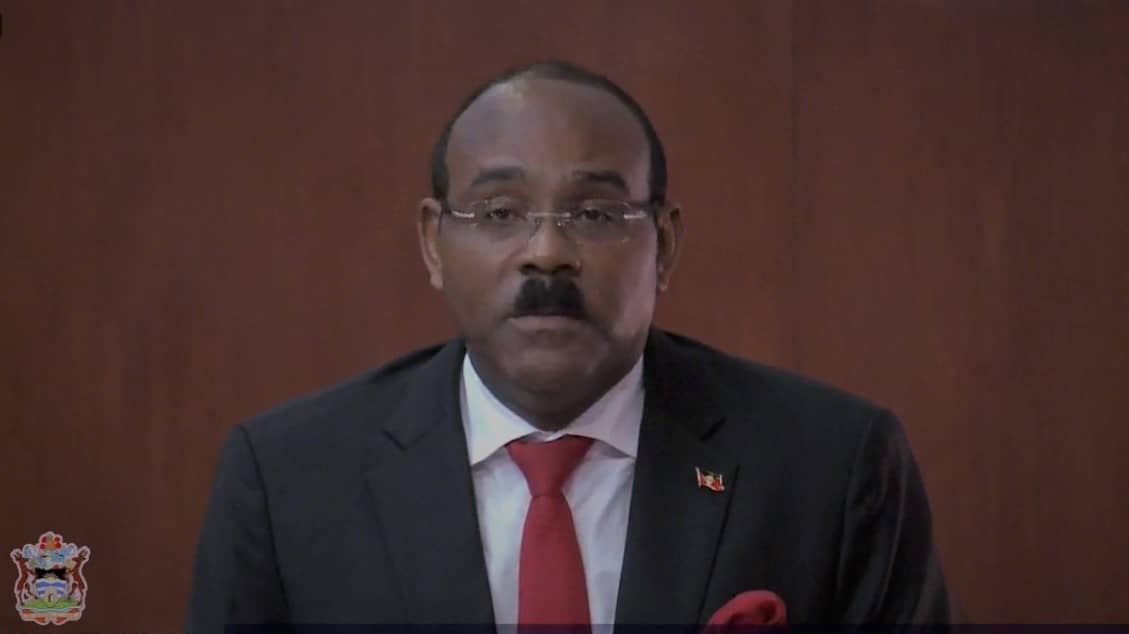
by Sanka Price
[email protected]
As Cold War-like tensions rise between the United States, Russia and Cuba over the escalating Venezuelan crisis, it is more important now than ever that the leadership of the Anglophone Caribbean publicly speaks with one voice on this and other significant issues.
Such a united approach would strengthen our voices globally in the search to avoid armed conflict in that South American nation. And, if that cannot be avoided, be at one in our call for assistance to handle the refugee crisis that would follow the eruption of civil war there.
This is why Caribbean leaders should be engaging their individual populations more about the potential impact the crisis in Venezuela can have on their territory, and how their government intends to respond if the worst-case scenario occurs. By informing the public, they would be better prepared to do their part in any emergency situation.
This seeming lack of a cohesive CARICOM information action plan is not surprising as too many of our governments continue, unfortunately, to approach regional issues in an insular manner when a united voice would be more effective.
Sadly, this is a throwback to the one-upmanship style that was pervasive in early post-colonial days. That approach has retarded the region’s holistic development and allowed larger countries and multinational corporations to play us against each other to secure generous concessions and other sweetheart deals.
It is shameful that in the 21st Century some leaders still peddle this approach which may bolster their political base and national image, but does nothing to strengthen us as a bloc to be reckoned with if we spoke and voted as a unit at international fora.
The most consistent practitioner of this antiquated approach is Antigua and Barbuda’s Prime Minister Gaston Browne. And his blunt, uncompromising statement last weekend on establishing a university campus in Antigua once again demonstrated this style.

That apart, Browne has railed against Carnival Cruise lines, Sandals, the Scotiabank sale to Republic Bank, and the shifting of LIAT’s headquarters.
While his muscular rhetoric may have gained him local support, to date there is no tangible evidence of any success in improving the lot of Antiguans. Rather, the evidence so far suggests he has managed to exacerbate situations that should have been more delicately handled.
For instance, the Carnival Cruise lines issue which erupted after Antigua signed a US$83 million contract with Global Ports Holdings to redevelop their port, and rejected the company supported by the cruise industry. Consequently, Carnival indicated they were cancelling their ships from this November, with the prospect of Antigua losing 100,000 passengers and millions in revenue.
Browne went on the offensive and accused the Florida-Caribbean Cruise Association, of which Carnival is a member, of using its influence to exploit the Caribbean. When the matter was eventually resolved, Carnival agreed to continue to visit Antigua, but on new terms. No details have been given and Browne has been uncharacteristically quiet on the matter citing a confidentiality clause in the agreement.
So it is still unclear if the 35 ship calls previously planned are back on, or if – as was suggested – the Antiguan government has agreed to charge Carnival less taxes so it would reverse its decision.
What we do know is that an opportunity was lost for regional governments to act collectively on a matter that potentially faces each of them in dealing with the cruise lines.
Surely, if Antigua brought a compelling case to disagree with Carnival to regional leaders, a united position could have been taken to ensure that cruise line, or any other, thinks twice before taking any approach that could be considered hostile to the interests of the governments.
Prior to this, Browne had a major opportunity to get CARICOM leaders to adopt a “touch one, touch all policy” and didn’t publicly seek this approach. We’re speaking of his confrontation with Sandals Resorts International (SRI) when he accused the Butch Stewart outfit of unjustifiably asking for long concessionary periods and not paying their fair share of taxes. Thereafter, there was a battle of undiplomatic language between him and the Stewarts.
Again, had the merits of that case been brought before CARICOM leaders and a united policy developed, it would have certainly strengthened the hand of Barbados’ present administration now embroiled in a not too dissimilar dispute over concessions with SRI over the stalled US$420 million Beaches resort project on the site of the former Almond Beach Village in St Peter.
Prime Minister Mia Mottley has said her administration is committed to the agreements signed by the last regime, and “welcomes the Beaches project, but it cannot be at any price”.
In other words, had Browne acted within a CARICOM framework, his actions may have provided the catalyst for a regional position on Sandal’s seeking concessions. Instead, he took a maverick, insular approach.
Admittedly, this battle bolstered him politically as he was convincingly re-elected as many of his countrymen supported his unrelenting style against big business.
He has taken this same insular, lone wolf approach to the Scotiabank sale to Republic Bank by first suggesting the bank’s assets in his country should be sold to Antiguan interests. When that myopic view did not get traction, he insisted the 75 employees should be paid severance first and allowed to continue their employment at the same level under Republic Bank as if they were still with Scotiabank. He even changed a law, as he did in his confrontation with SRI, to ensure he gets his way.
While Browne’s severance proposal would be attractive to employees, it would likely lead to the abandonment of the sale given the increased expense involved if severance has to be paid. That would likely result in Scotiabank’s closure without Republic Bank taking over its assets.
In this scenario, Browne wins, but Antiguans would be the big losers as the country would have missed out on having a strong regional bank with a solid reputation and international links to provide correspondent banking services.
Respected retired regional banker, Harry Russell, best explains the folly of such a move. He said: “Those seeking to endorse the demands of the government have little to offer except the taking over of a small office.
“Here again, we see the narrow-minded approach in the Caribbean leadership that has not allowed us to unite since the late 1950s. It is sad.”
We won’t dwell on LIAT as Browne, having rejected all plans to shift some of the operations of the airline to Barbados where the most profitable routes are, as a cost-saving measure, has now submitted a plan to the other shareholders to improve the service. That plan, essentially involves the takeover of some of Barbados’ majority shares in an effort to ensure ongoing funding for the airline from other sources. Whether this approach has insular considerations is questionable. But time will tell.
That brings us to Browne’s statement last weekend that he intended to open a fourth University of the West Indies campus in Antigua come September. He told listeners to his radio station that this was going to happen regardless of whether or not there’s support from other Caribbean countries.
“If they put any obstacles in our way, then we use another brand; it doesn’t have to be UWI. We have decided to go with UWI because we are integrationists at heart and we would expect their full cooperation.
“Just as how Barbados, Trinidad and Tobago and Jamaica have campuses to educate their people, we want the same thing within the OECS, and this is an initiative in which Antigua and Barbuda shall not relent. . . . Those who have their little petty jealousies, they better put them aside.”
This statement, that smacks of an insular perspective, demonstrates why Browne’s approach is backward. For the Anglophone Caribbean to achieve its true potential, it needs more enlightened leadership than this.
Advertise with the mоѕt vіѕіtеd nеwѕ ѕіtе іn Antigua!
We offer fully customizable and flexible digital marketing packages.
Contact us at [email protected]
















A rather harsh assessment of PM Browne in this commentary. PM Browne one who is never unwilling or afraid of a fight so I am sure that he will respond accordingly in due course. I( want to suggest though that the sentiments offered by the commentator might have its genesis far higher up than the commentator as other leaders are seeking ways to tame PM Browne and his quick lips.
Donkey attitude race horse feed = a fast load of shit!..
Let the dogs bark…the wagon rolls on.
That’s your opinion,and nothing more.Not everyone can stand someone who speaks truth to power and stand up to all who thinks they are mightier than thou.Speaking about antiquated-it is the approach to certain issues taken by some of our regional leaders that is antiquated .The PM of our nation stands against whomever he thinks is trying to force their will upon us because of their might..If we cant stand against the Bigots and all who think might is always right in this 21st century,then we may as well be enslaved .The stance the PM is taking towards Venezuela is always constant-no interference.. The stance he took against Scotia Bank is
The writer of this article sound to me like the one with the ” Early Post Colonial days approach”(his words). This is the 21st century who the hell ever you are- we are no longer enslaved and should stand up for what we think is right for us. Where is the professionalism in the article? because this is nothing less than a personal attack on the PM. Hope you were well paid..
A man who don’t stands for what he believes, stands for nothing. This writer reminds me of someone waiting for his glory days to return. When they were quite comfy under a previous government gathering crumbs from the table and thought it was the meal. The P.M is quite candid at time because he stands up for what he believes in. Gone are the days we should bow to persons with a little power and make them believe that are holding the reigns. Stand for what is right. Since this post is political might I add a few instances where his people has backed down and ceased to defend what they believe in. A certain marine biologist was all over standing for the export of sand to cease in Barbuda claiming soon there will be no more Barbuda. That was when Labour was in council. Now he does not care if Barbuda goes under the sea. His party in power. Same biologists during the building of the Barbuda fisheries advocated that the location was wrong. He party gave 60000 as hush money. So let’s see who’s the ones with early post colonial days.
Gaston only in it for creative enrichment and taking full advantage of anything and everything.
One example, how does someone fresh out of college become a millionaire and buy expensive items. Not to mention he used Antigua funds for his educational benefit. Seems like he could afford his education before graduating. But then again, it’s Gaston’s son.
Comments are closed.